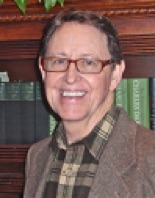Marquette University Faculty Participants: Owen Goldin (Ancient), Susanne Foster (Ancient, Ethics), John Jones (Medieval Social Thought, Neoplatonism), James South (Late Medieval & Renaissance), Andrew Tallon (NeoThomism, phenomenology), Richard C. Taylor (Medieval Latin & Arabic), Roland Teske, S.J., (Medieval, Augustine, Philosophy of Religion), David Twetten (Medieval, Aquinas) and others from Marquette and other regional universities.
Recent visiting participants in the seminar have included Suzanne Stern-Gillet (Bolton Institute), Alfred Ivry (New York University), Thomas Williams (University of Iowa), Eugene Garver (Saint John's University), Patricia Curd (Purdue University), Cristina D'Ancona (Università di Padova), John Sisko (College of William and Mary), Jeffrey E. Brower (Purdue University), Mary J. Sirridge (Lousiana State University), Richard Tierney (University of Wisconsin at Milwaukee), Kenneth Seeskin (Northwestern University), Ruth Glassner (Hebrew University, Mt. Scopus, Jerusalem), Steven Harvey (Bar Ilan University), Ray Weiss (University of Wisconsin at Milwaukee), Hye-Kyung Kim (University of Wisconsin at Green Bay), Lorraine Pangle (University of Texas at Austin), Josep Puig Montada (Universidad Complutense de Madrid), Roslyn Weiss (Lehigh University), Helen Lang (Villanova University), Andrew Payne, Universityof St. Joseph, Daniel Frank, Purdue University, Andreas Speer, Thomas Institut, Cologne, Carlos Fraenkel, McGill University, Sarah Pessin, University of Denver, and others.
DIRECTIONS AND MAPS:
- For directions to the Marquette Campus, see http://www.marquette.edu/contact/directions/
- For information on the Raynor Library and nearby parking see
http://www.marquette.edu/contact/finder/raynor.shtml.
- For information on the Alumni Memorial Union (AMU) and its location, see
http://www.marquette.edu/contact/finder/union.shtml
- For information on Cudahy Hall and its location, see
http://www.marquette.edu/contact/finder/cudahy.shtml
- For a map of the Marquette University campus, see http://www.marquette.edu/contact/CampusMap.pdf
- For a map of downtown Milwaukee, see
http://www.wisconline.com/counties/milwaukee/map-downtown.html
Send requests for information to:
Richard C. Taylor, Department of Philosophy, Marquette University
Email: mistertea@mac.com or Richard.Taylor@Marquette.edu.
Telephone: (414)-288-5649, Fax: (414)288-3010
SOME VALUABLE LINKS
Aquinas and the Arabs: A Project in Medieval Philosophy:
http://web.mac.com/mistertea/iWeb/Aquinas%20&%20the%20Arabs/Aquinas%20&%20the%20Arabs.html
Marquette University Philosophy Department: http://www.marquette.edu/phil/









